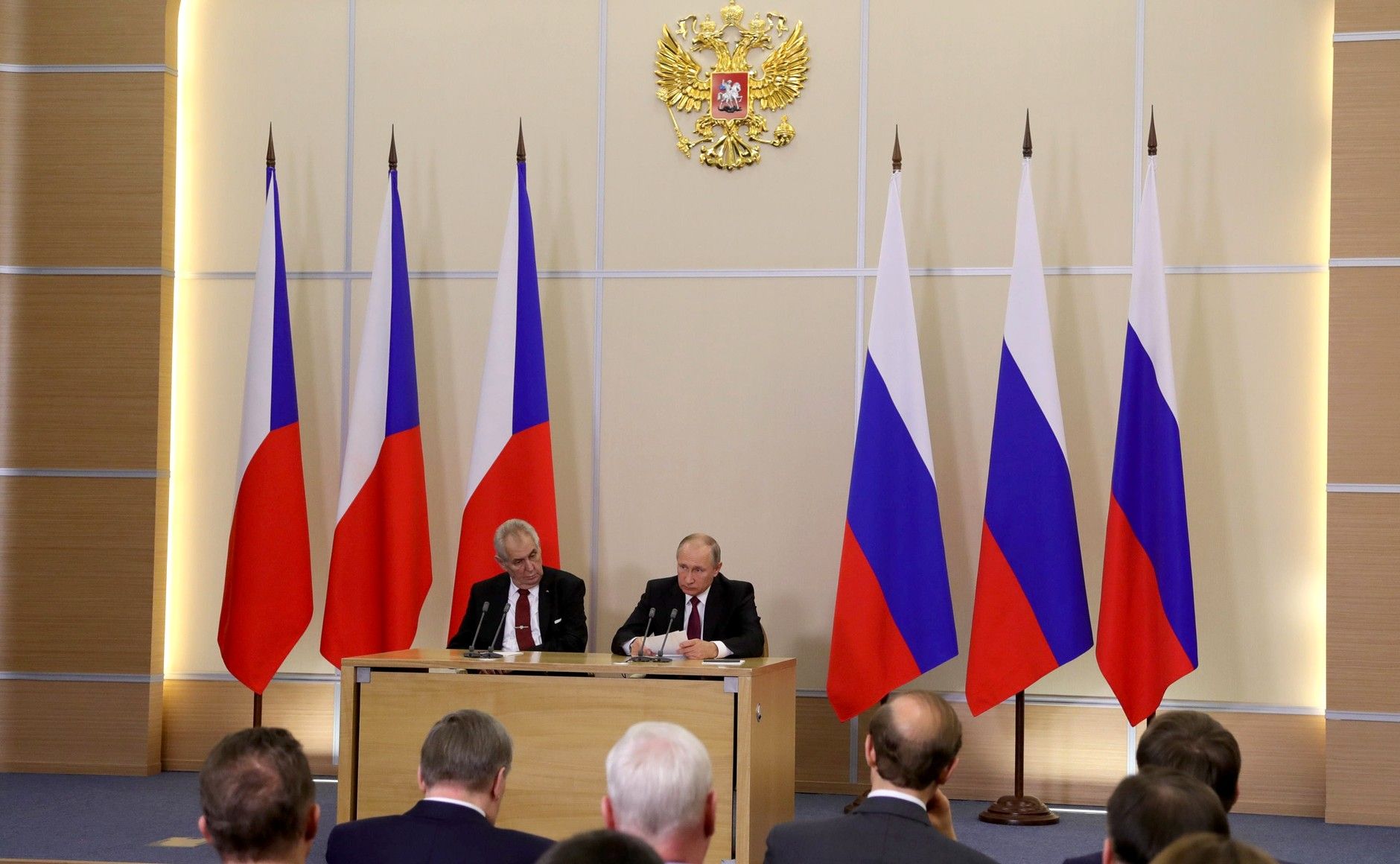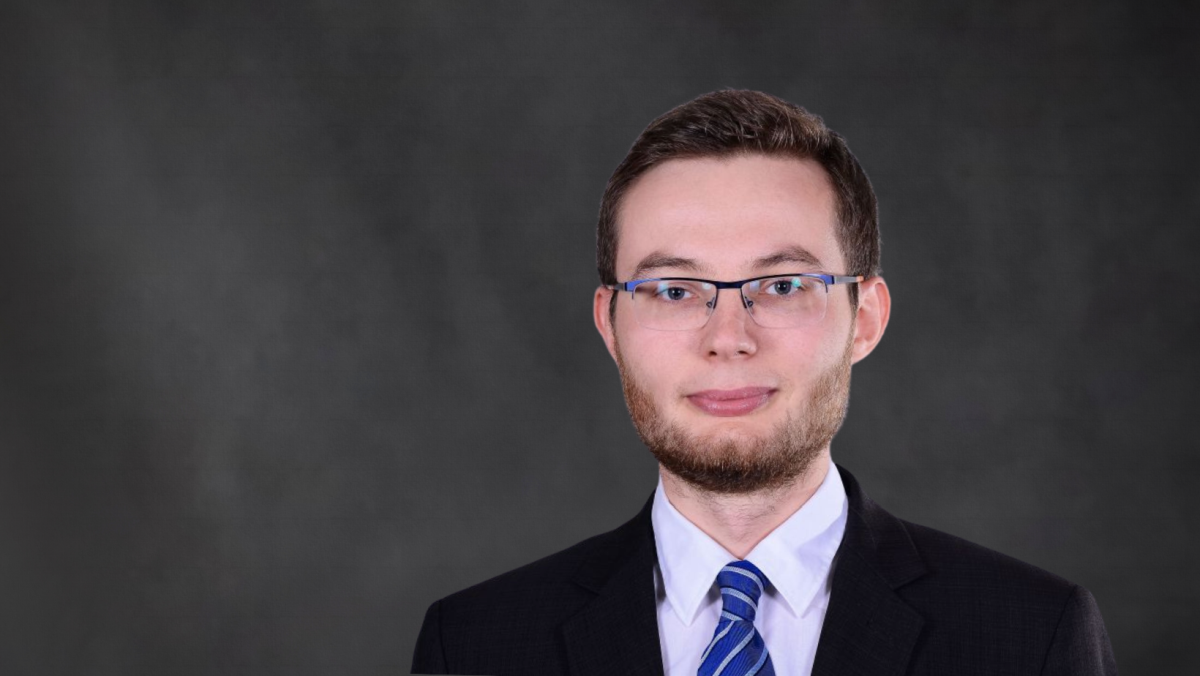Complications in the Czech Republic’s Relations towards Russia

The Czech Authorities on Russia
President Miloš Zeman is the greatest advocate of close Czech-Russian relations. He supports Russian interests by advocating lifting the EU sanctions on Russia and backing the creation of the NS2. Although he has said he considers the annexation of Crimea to be unlawful, in a speech to the Parliamentary Assembly of the Council of Europe in October 2017, he suggested that Russia could pay some compensation to Ukraine for the peninsula. In addition, Zeman maintains friendly, personal relations with President Vladimir Putin, including through official visits to Russia. Backed by both presidents, the annual Czech-Russian Discussion Forum was launched in 2018, gathering, among others, academics of both countries. The Czech president also tries to undermine the actions of critics of Russian policy. He has postponed handing over the general nomination of the head of the Security Information Service (BIS), because the nominee, Michal Koudelka, warns against Russian influence in the Czech Re
The coalition government of the centrist ANO and the Czech Social Democratic Party (ČSSD) does not have a coherent policy on Russia. Prime Minister and ANO leader Andrej Babiš has spoken out in favour of dialogue with Russia and sees the EU sanctions as a factor negatively affecting the Czech economy. So far, he has restrained from criticizing the Russian actions against Ukraine, although he condemned the annexation of Crimea during his visit to Kyiv in mid-November, the first high-level visit since 2008. Radek Vondráček, chairman of the lower chamber of the Czech parliament, is regarded as the person most promoting cooperation with Russia inside ANO. He criticizes Russia’s international isolation and in October 2017, during a visit to Russia, he met with politicians sanctioned by the EU. On the other hand, Foreign Minister Tomáš Petříček (ČSSD) supported the expulsion of three Russian diplomats in a gesture of solidarity with the UK after the nerve-agent attack on Sergei and Julia Skripal in March 2018. Petříček's actions are not, however, common to the party line, which, according to its programme, is to maintain “good, strategic relations with Russia”. The Communist Party of Bohemia and Moravia is regarded as the unambiguously pro-Russia party on the Czech political scene, though it owes its vote of confidence to the minority government of ANO-ČSSD.
Increasingly, Czech relations with Russia are shaped by local authorities, who cite historical policy. Disputes around monuments commemorating figures associated with the end of World War II in the Czech Republic have contributed to the worsening of bilateral relations. The monument to Konev was removed in September after a decision by the city council of the capital’s Prague 6 district. Before that, the monument had been vandalised because the marshal, who entered Prague with the Red Army in May 1945, also participated in the suppression of the Hungarian Uprising in 1956. The second major dispute came about in another part of the capital, Řeporyje, which decided that by May 2020, before the 75th anniversary of the Prague Uprising, it would commemorate the soldiers of the Russian Liberation Army (ROA), who collaborated with the Third Reich but then switched sides to join the Prague insurgents and fought for the liberation of Prague before the arrival of the Red Army. Both initiatives have been criticized by the Russian Ministry of Foreign Affairs.
Cybersecurity and Disinformation
Russian espionage and disinformation activities have also had a negative impact on bilateral relations, and its variety and scale reflecting Russia’s interest in the Czech Re This is confirmed by, among others, a 2018 BIS report published in November 2019 that lists attempts to influence decision-making processes in the Czech Republic, the spread of disinformation and pro-Russian propaganda, as well as attacks by Russian hackers, for example, on the Czech Ministry of Foreign Affairs (data theft). The legitimacy of the warnings by Czech counterintelligence was confirmed by the break-up of the Russian hacker network, disclosed in October. The network was associated with the Russian Federal Security Service and financed by Russia.
The Czech Republic has extensive experience in the fight against Russian disinformation on social media and with so-called “alternative” news outlets, as well as information pages produced by pro-Russia activists. The susceptibility of Czech society to this kind of information is relayed in a 2017 study by the International Republican Institute, according to which 38% of respondents believe that Russia is defending European values. The Centre Against Terrorism and Hybrid Threats, a unit of the Ministry of the Interior, aims to reduce misinformation. Among its tasks is stopping external propaganda, including influence on the course of elections. In the non-governmental sector, monitoring of Russian activities is carried out by “Kremlin Watch”, a programme run by the European Values think tank.
Economy and Energy
Czech-Russian trade, like in other Visegrad Group countries, has been growing since 2017 despite the EU sanctions. In 2018, it amounted to about $9.8 billion, the highest since 2014 ($11.7 billion). Despite this increase, the Czech Ministry of Agriculture has accused Russia of sabotaging the development of economic relations. For example, the Russian authorities prevented Czech Agriculture Minister Miroslav Toman (ČSSD) from flying from Moscow to Kazan with an economic mission at the end of November.
The Czech Ministry of Industry and Trade has supported the creation of the NS2. The Czech Republic is counting on strengthening its position as a transit country for Russian gas, which, thanks to NS2 and the Gazela gas pipeline (an extension of the branch of the Nord Stream 1 gas pipeline), as well as the planned EUGAL gas pipeline, would flow first to the Czech Republic and then to Austria and Slovakia. That is why, despite being dependent on imports of Russian gas, the Czech authorities have done little to diversify the sources. In addition, Russian Rosatom may be contracted to expand the units at the Dukovany nuclear power plant. According to the government’s schedule presented in November, the contractor for this investment is to be selected in 2022.
Perspectives
Czech-Russian political relations are deteriorating, with the circumstances being the Russian aggression against Ukraine and mutual sanctions, Babiš’s visit to Kyiv and gestures of support for Ukraine, the intensification of Czech-American relations—for example, the extradition of Russian hacker Yevgeniy Nikulin to the U.S.—and retaliation by Russia, including the cancellation of Minister Toman’s visit to Kazan. The prospects for improving political relations, despite President Zeman’s pro-Russia activity, remains limited. This also is influenced by local authorities’ actions and the stance of the BIS counterintelligence services, which are not controlled by the government, rather supervised by the Czech parliament. This complexity, though, also makes it more difficult for other countries to influence Czech decisions in this field.
Contrary to the deteriorating cooperation in Czech-Russian political and intergovernmental areas, economic relations are developing. Czech leaders emphasize that trade is damaged by the EU sanctions policy on Russia. It cannot, therefore, be ruled out that the Czech Republic will oppose the continuation of these restrictions if a significant number of EU countries also opt for lifting them. For Prime Minister Babiš, economic and energy interests are more important than diplomatic relations or historical policy. The Czech approach is thus different from the policy of the Slovak government, for example, which seeks better relations with Russia in both the political and economic sphere.
Further development of energy cooperation, especially gas cooperation, with the participation of Russia is likely. The Czech government’s support for the NS2 speaks to a different understanding of the expansion of the north-south energy corridor than, for example, that of the Polish government. This approach is contributing to a delay in building the planned second gas interconnector between Poland and the Czech Republic (Stork II). This weakens the infrastructure development potential assumed as part of both Visegrad cooperation and the Three Seas Initiative.


